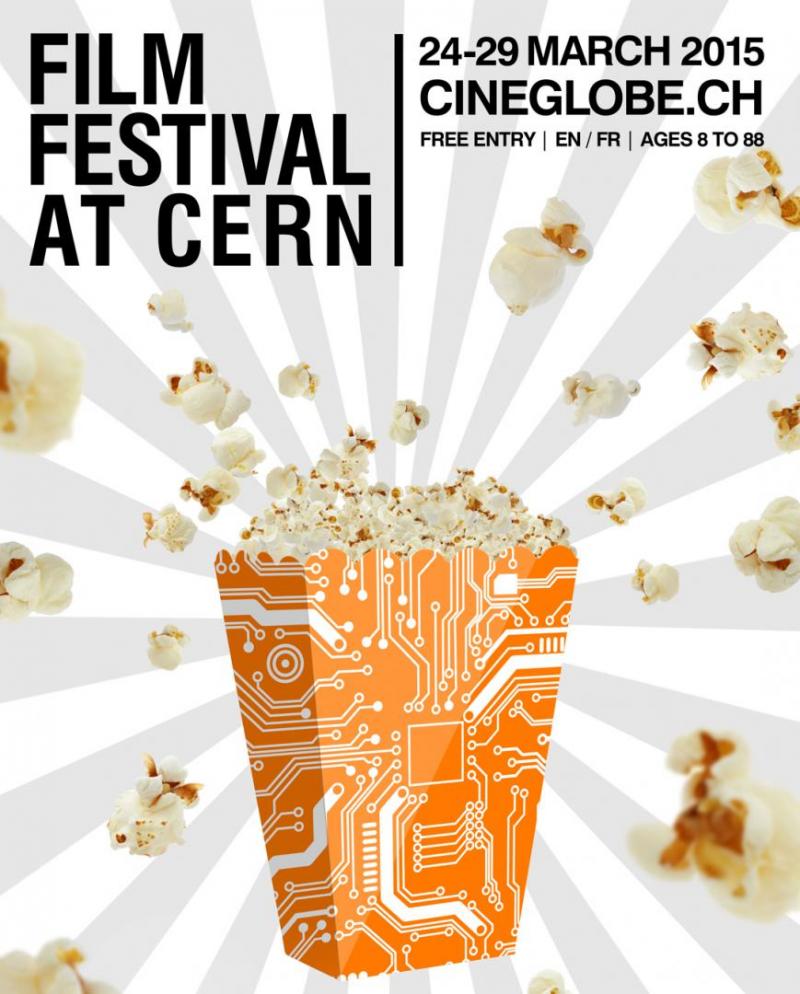 Geneva, 16 March 2015. CERN1 will be hosting the next CineGlobe International Film Festival on 24 – 29 March. For its fifth edition, CineGlobe celebrates the theme of ‘Convergence’. This theme embraces the meeting of minds, methods and meaning of our times.
Geneva, 16 March 2015. CERN1 will be hosting the next CineGlobe International Film Festival on 24 – 29 March. For its fifth edition, CineGlobe celebrates the theme of ‘Convergence’. This theme embraces the meeting of minds, methods and meaning of our times.
“The festival is about the convergence of art, cinema and science. This year, CineGlobe witnesses how science is changing the way we tell stories in art and cinema”, says Neal Hartmann, the festival’s director.
As the world becomes a global village, CineGlobe bears witness to the process through the moving image.
“CERN is like a global village”, says Director-General Rolf Heuer, “offering fertile ground for the convergence of science, technology, research, creative process, art and personal expression. It’s a natural place to host such an event.”
The festival itself has three main segments: films, workshops, and interactions. The 31 fiction and 27 non-fiction films have been selected from more than 900 submissions spanning 5 continents.
A special landmark for this year is the 360-degree projection of films in a geodesic dome. Animated by a local visual artist, the dome will be the venue for evening events and interactions and will feature the avant-première of “Phantom of the Universe”, a half-hour planetarium show created at CERN that examines the mysteries of dark matter and dark energy.
As well as screening films, the festival also offers three workshops for the general public on: How to make a pinhole camera with a tetrapak, Art of the Timelapse, and Stop-motion animation.
The interactions include an eight-month Hackathon challenge to tell stories about science using the Oculus Rift, a virtual reality head-mounted display.
During the festival, the audience members are invited to meet and interact with the filmmakers and jury.
The event will take place in French and in English. For the full schedule and all information, consult the Festival's website.
Contact:
Neda Navi
CineGlobe local communication
Email: neda@cineglobe.ch
Tel: +41 22 767 6541
1. CERN, the European Organization for Nuclear Research, is the world's leading laboratory for particle physics. It has its headquarters in Geneva. At present, its Member States are Austria, Belgium, Bulgaria, the Czech Republic, Denmark, Finland, France, Germany, Greece, Hungary, Israel, Italy, the Netherlands, Norway, Poland, Portugal, Slovakia, Spain, Sweden, Switzerland and the United Kingdom. Romania is a Candidate for Accession. Serbia is an Associate Member in the pre-stage to Membership. India, Japan, the Russian Federation, the United States of America, Turkey, the European Union, JINR and UNESCO have Observer Status.